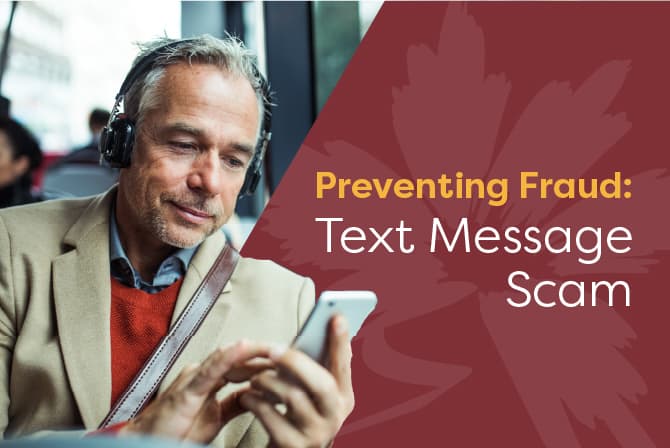Preventing Fraud: Text Message Scam

It started with a text asking if Taylor spent $1,532 at Target. Believing the text was from his credit union, he responded “NO.” Then, his phone rang.
“The woman on the phone told me the text was for fraud prevention,” Taylor said. “She told me that she could help if I immediately gave her my username and password for Online Banking.”
Taylor followed these instructions. He believed she was reversing the fraudulent Target payment when in fact it was just the opposite. “That’s where the scam was,” he said. “She took all the money out of my account. It was gone.”
Here’s how to identify this scam:
The person contacting Taylor about his account was pushy, and they insisted there was no other way to fix the problem besides following their instructions.
Here’s how to protect yourself from this scam:
- Never discuss account numbers, PINs, passwords, or other personal information with anyone who contacts you. Legitimate companies don’t ask for information like your account numbers or passwords by email, phone or text.
- Don’t call phone numbers sent in texts, emails or voicemails, as it will connect you with the scammers. Instead, call Educators Credit Union directly at 262.886.5900 and check whether the email, text or voicemail is from us.
- Don’t trust caller ID. Just because your caller ID displays a phone number or name of a legitimate company you might recognize, it doesn’t guarantee the call is really coming from that number or company. Forward fraudulent texts to your wireless service provider at 7726 or “SPAM.”
- Don’t click on links provided in text messages from numbers you don’t recognize. Links can install malware and take you to fake websites that look real but whose purpose is to steal your information.
For more stories like this one, visit www.ecu.com/files/FraudBooklet.pdf.
